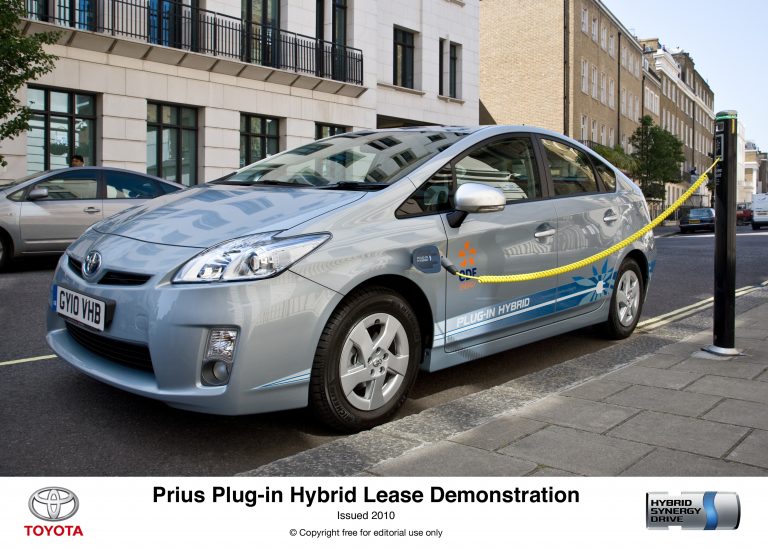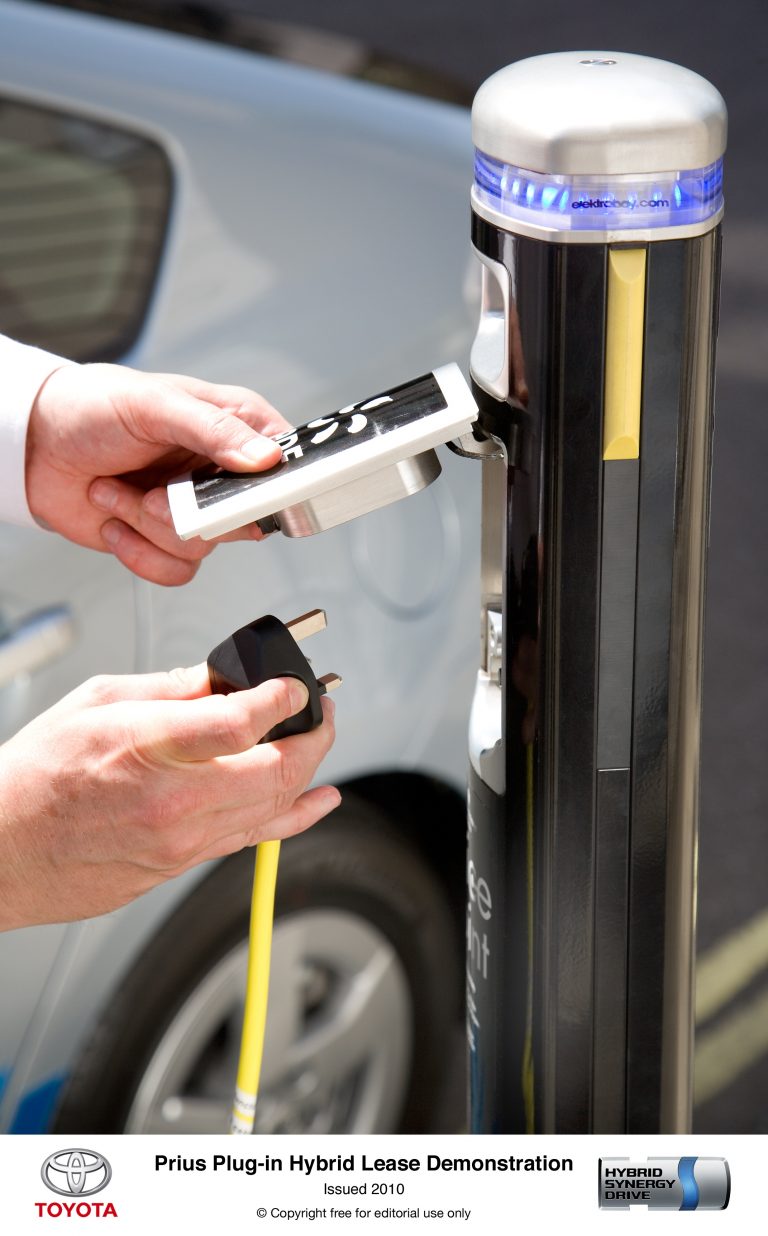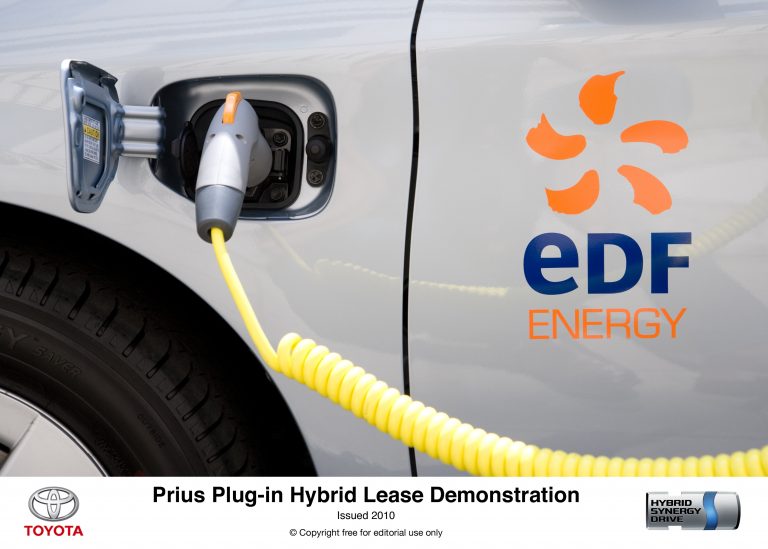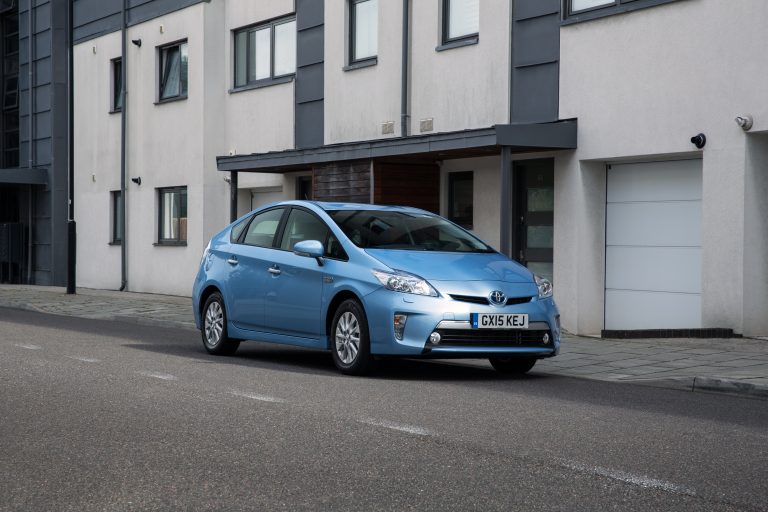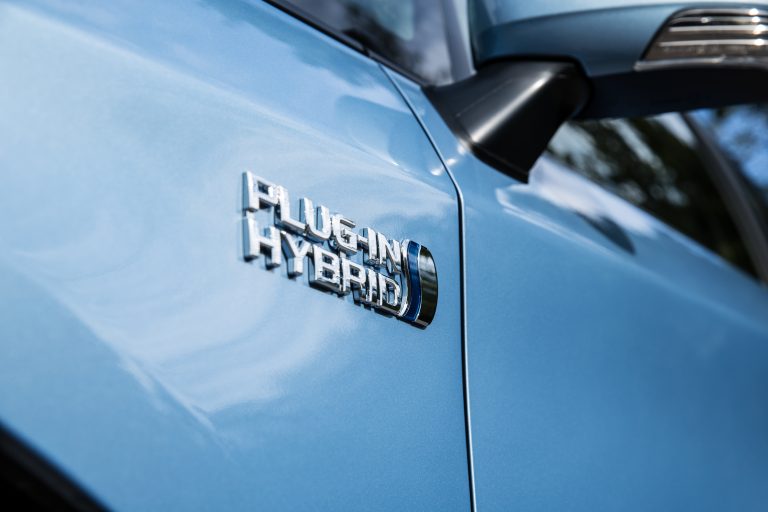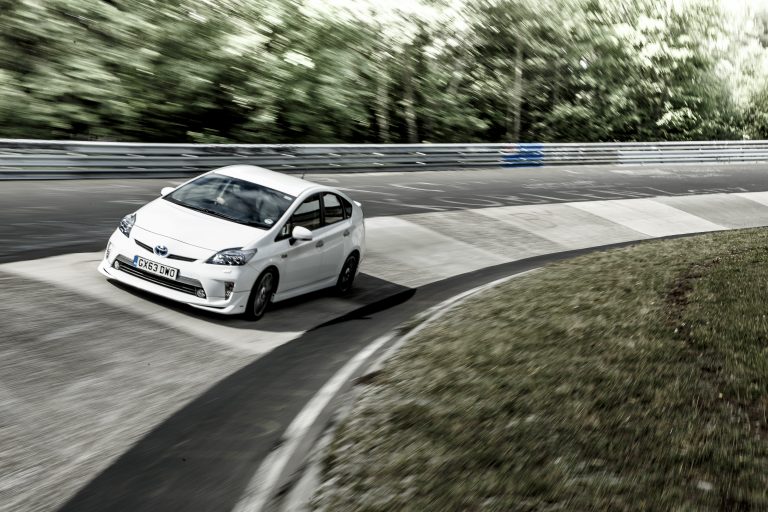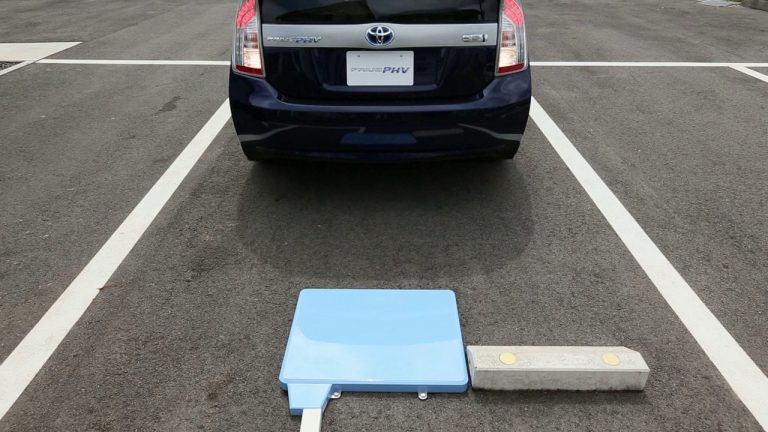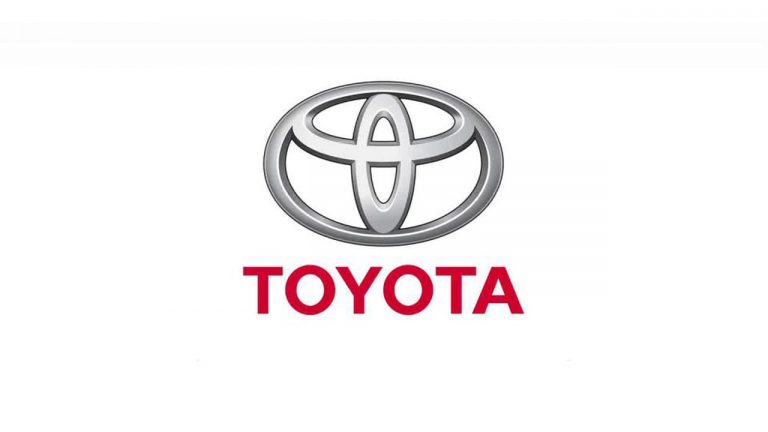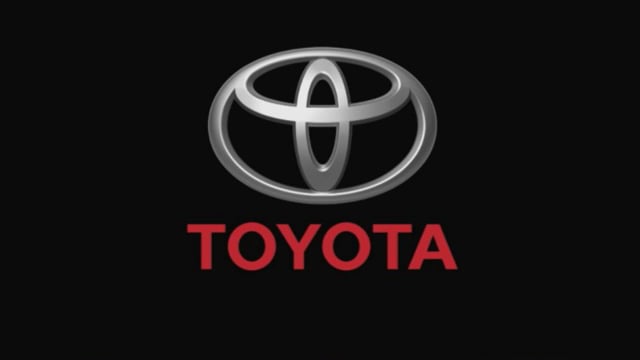Toyota and EDF Energy Launch the UK’s Largest Plug-in Hybrid Vehicle Leasing Programme
KEY POINTS
- 20 Prius Plug-in Hybrid cars take to London’s streets from July 2010
- Three-year lease demonstration programme providing plug-in hybrid vehicles to public organisation and business fleet users
- Data collection to provide Toyota, EDF Energy and UK Government with real-world intelligence on user behaviour and attitudes, vehicle performance and energy recharging and infrastructure issues
- Rechargeable lithium-ion battery gives Prius Plug-in extended electric-only driving range with zero fuel consumption and zero tailpipe emissions
- Combined cycle fuel consumption* 108.6mpg and 59g/km CO2
- EDF Energy delivering charging points at workplaces, on-street and domestic locations
- One of eight projects in the Technology Strategy Board’s national Ultra Low Carbon Vehicle Demonstrator Programme, part-funded through the Office for Low Emission Vehicles (OLEV) and administered by Cenex
- Programme paves the way for commercialisation of Prius Plug-in within the next few years
Toyota and EDF Energy today launch a three-year leasing programme that brings ultra-low emissions plug-in hybrid vehicle technology to the streets of London.
The first Toyota Prius Plug-in to reach the UK are joining the vehicle fleets of five businesses and public organisations, where they will demonstrate the fuel efficiency, low emissions, cost savings and everyday practicality their rechargeable hybrid power system can deliver.
The real-world experiences of the drivers and fleet operators will provide both companies and UK Government with valuable insights into driver attitudes and usage patterns to help them design their strategies for introducing plug-in hybrids and recharging technologies. It will also help inform and shape public policy in this field. Thanks to information recorded through EDF Energy’s charging infrastructure, the programme will deliver valuable intelligence about the benefits gained in energy savings and reduced emissions, recharging patterns and preferences.The leasing programme is part of the Technology Strategy Board’s Ultra Low Carbon Vehicle Demonstrator Programme, and benefits from funding support from the UK Government, through the Office for Low Emission Vehicles (OLEV). The organisations and businesses taking part in the programme are Transport for London, the Government Car and Despatch Agency, the Metropolitan Police Service, News International and Sky. Miguel Fonseca, Managing Director Toyota (GB) PLC, said: “I am delighted to be joining with EDF Energy to launch the UK’s largest plug-in hybrid programme, a project that will deliver valuable insights into the behaviour and preferences of UK drivers as they engage with the technology for the first time and experience it in their everyday driving routines. Toyota is committed to developing sustainable, low emissions mobility and Prius Plug-in marks another important element in our environmental leadership, and a further step towards its ambition of building the ultimate eco-car.“I also welcome the partnership Toyota has formed with EDF Energy, with the Government organisations that are supporting us, and the end-users who have signed up to the programme. I am confident that everyone involved will gain important benefits through the course of the programme.
EDF Energy Managing Director of ESCS Martin Lawrence said: “I am delighted that EDF Energy, the UK’s largest producer of low-carbon electricity, can play such an important role in the research and demonstration of these new vehicles. And I’m proud to collaborate with Toyota on this project as it builds on the success of the first plug-in hybrid vehicle trial which began a year ago.
“The new Government has committed to a national recharging network for electric and plug-in hybrid vehicles. The demonstration that we launch today plays a key part in that development. Transport currently accounts for around a fifth of the country’s carbon footprint and the take up of clean, electric transport can help the UK meet its climate change targets.
“Sustainability is at the core of our business and it is work like this that helps EDF Energy meet the climate change targets set out in our new Sustainability Commitments.”
The cars involved in the lease programme are essentially the same as the current third-generation full hybrid Prius, but they are equipped with a powerful lithium-ion battery that can be recharged simply by being connected to a standard 240V electricity supply. EDF Energy has identified appropriate plug, socket, wiring and cabling specifications to comply with BS7671 safety standards, while maintaining fundamental ease of use. The charging points incorporate a keypad that enables each user and vehicle to be identified when recharging takes place.
The rechargeable battery technology gives Prius Plug-in extended capabilities when it is driven in EV (electric vehicle) mode: capable of running for up to 12.5 miles solely on its electric motor – battery charge and road conditions permitting – at speeds up to 62mph, it can accomplish the great majority of typical urban journeys with zero fuel consumption and tailpipe emissions. Prius Plug-in’s combined cycle fuel consumption and CO2 emissions are 108.6mpg and 59g/km respectively.
Should the battery charge be used up in the course of a journey, Prius Plug-in will seamlessly switch to power from its efficient 1.8-litre VVT-i petrol engine, meaning the driver need suffer no “range anxiety” about the distance his or her car might manage.
As part of a worldwide initiative involving 600 Prius Plug-in, 200 of which are in Europe, the London programme will support Toyota’s plans to introduce a plug-in hybrid vehicle to the market within the next few years.
EDF Energy is the UK’s largest producer of low carbon electricity. Sustainability is at the heart of its business, as expressed in its recently launched Sustainability Commitments, which are among the biggest package of environmental and social initiatives to be announced by a UK energy company.
Its vision for powering a low carbon Britain not only requires the decarbonisation of electricity, but also low carbon transport. Supporting this goal, EDF Energy is marking a significant milestone in its on-going collaboration with Toyota by powering what is the UK’s largest plug-in hybrid vehicle leasing programme.
EDF Energy is also working with the Greater London Authority with the aim of installing up to 550 public access charging points across the capital, as part of the Plugged in Places programme.
* European homologation combined cycle. CO2 emissions of Prius Plug-in Hybrid are measured according to the new official international regulations for plug-in hybrid electric powertrains, as adopted by the United Nations Economic Commission for Europe.
ENDS
Contacts
Toyota Motor Europe
Chris O’Keefe on 020 7290 8516 or by e-mail at chris.o.keefe@toyota-europe.com
Sophie Ogunbiyi on 020 7290 8509 or by e-mail at sophie.ogunbiyi@toyota-europe.com
EDF Energy
Phillippa Coates on 020 7752 2266 or by e-mail at phillippa.coates@edfenergy.com
Stephen Walker on 020 7752 2260 or by e-mail at Stephen.walker@edfenergy.com
Technology Strategy Board
Claire Cunningham on 0755 4115745 or by e-mail at claire.cunningham@tsb.gov.uk
Cenex
Sue Glanville/Jo Gwaspari, Say Communications, on 020 8971 6423/6407 or by e-mail at cenex@saycomms.co.uk
Notes to editors:
EDF Energy
EDF Energy is one of the UK’s largest energy companies, producing around one-fifth of the nation’s electricity from its nuclear, coal and gas power stations, as well as combined heat and power plants and wind farms. The company provides power to a quarter of the UK’s population via its electricity distribution networks and supplies gas and electricity to more than 5.5 million business and residential customers. It is the number one supplier of electricity to major business in the UK.
EDF Energy’s safe and secure operation of its eight existing nuclear power stations at sites across the country makes it the UK’s largest generator of low carbon electricity. EDF Energy is also leading the UK’s nuclear renaissance and has published plans to build four new nuclear reactors, subject to the right investment framework. These new plants would generate enough low carbon electricity for about 40% of Britain’s homes. They would make an important contribution to the UK’s future needs for clean, secure and affordable energy. The project is already creating business and job opportunities for British companies and workers.
Through Our Sustainability Commitments, EDF Energy has launched the biggest environmental and social programme of any UK energy company.
EDF Energy is part of EDF Group, one of Europe’s largest power companies. Following the integration with British Energy in 2009, the company employs nearly 20,000 people.For more information please visit: www.edfenergy.com
Technology Strategy Board
The Technology Strategy Board is a business-led executive non-departmental public body, established by the Government. Its role is to promote and support research into, and development and exploitation of, technology and innovation for the benefit of UK business, in order to increase economic growth and improve quality of life. It is sponsored by the Department for Business, Innovation and Skills (BIS). For more information please visit www.innovateuk.org
Cenex
Cenex (www.cenex.co.uk) is the UK’s first Centre for Excellence for Low Carbon and Fuel Cell technologies. By encouraging the early market adoption of low carbon and fuel cell technologies in automotive applications, Cenex aims to assist the UK automotive supply chain to compete in global markets as well as showcase UK expertise to encourage inward investment.

